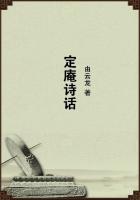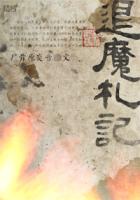(January 1833)
History of the War of the Succession in Spain. By LORD MAHON.
8vo. London: 1832.
The days when Miscellanies in Prose and Verse by a Person of Honour, and Romances of M. Scuderi, done into English by a Person of Quality, were attractive to readers and profitable to booksellers, have long gone by. The literary privileges once enjoyed by lords are as obsolete as their right to kill the king's deer on their way to Parliament, or as their old remedy of scandalum magnatum. Yet we must acknowledge that, though our political opinions are by no means aristocratical, we always feel kindly disposed towards noble authors. Industry, and a taste for intellectual pleasures, are peculiarly respectable in those who can afford to be idle and who have every temptation to be dissipated. It is impossible not to wish success to a man who, finding himself placed, without any exertion or any merit on his part, above the mass of society, voluntarily descends from his eminence in search of distinctions which he may justly call his own.
This is, we think, the second appearance of Lord Mahon in the character of an author. His first book was creditable to him, but was in every respect inferior to the work which now lies before us. He has undoubtedly some of the most valuable qualities of a historian, great diligence in examining authorities, great judgment in weighing testimony, and great impartiality in estimating characters. We are not aware that he has in any instance forgotten the duties belonging to his literary functions in the feelings of a kinsman. He does no more than justice to his ancestor Stanhope; he does full justice to Stanhope's enemies and rivals. His narrative is very perspicuous, and is also entitled to the praise, seldom, we grieve to say, deserved by modern writers, of being very concise. It must be admitted, however, that, with many of the best qualities of a literary veteran, he has some of the faults of a literary novice. He has not yet acquired a great command of words. His style is seldom easy, and is now and then unpleasantly stiff. He is so bigoted a purist that he transforms the Abbe d'Estrees into an Abbot. We do not like to see French words introduced into English composition; but, after all, the first law of writing, that law to which all other laws are subordinate, is this, that the words employed shall be such as convey to the reader the meaning of the writer.
Now an Abbot is the head of a religious house; an Abbe is quite a different sort of person. It is better undoubtedly to use an English word than a French word; but it is better to use a French word than to misuse an English word.
Lord Mahon is also a little too fond of uttering moral reflections in a style too sententious and oracular. We shall give one instance: "Strange as it seems, experience shows that we usually feel far more animosity against those whom we have injured than against those who injure us: and this remark holds good with every degree of intellect, with every class of fortune, with a prince or a peasant, a stripling or an elder, a hero or a prince." This remark might have seemed strange at the Court of Nimrod or Chedorlaomer; but it has now been for many generations considered as a truism rather than a paradox. Every boy has written on the thesis "Odisse quem loeseris." Scarcely any lines in English poetry are better known than that vigorous couplet, "Forgiveness to the injured does belong;
But they ne'er pardon who have done the wrong."
The historians and philosophers have quite done with this maxim, and have abandoned it, like other maxims which have lost their gloss, to bad novelists, by whom it will very soon be worn to rags.
It is no more than justice to say that the faults of Lord Mahon's book are precisely the faults which time seldom fails to cure, and that the book, in spite of those faults, is a valuable addition to our historical literature.
Whoever wishes to be well acquainted with the morbid anatomy of governments, whoever wishes to know how great states may be made feeble and wretched, should study the history of Spain. The empire of Philip the Second was undoubtedly one of the most powerful and splendid that ever existed in the world. In Europe, he ruled Spain, Portugal, the Netherlands on both sides of the Rhine, Franche Comte, Roussillon, the Milanese, and the Two Sicilies. Tuscany, Parma, and the other small states of Italy, were as completely dependent on him as the Nizam and the Rajah of Berar now are on the East India Company. In Asia, the King of Spain was master of the Philippines and of all those rich settlements which the Portuguese had made on the coast of Malabar and Coromandel, in the Peninsula of Malacca, and in the Spice-islands of the Eastern Archipelago. In America his dominions extended on each side of the equator into the temperate zone.
There is reason to believe that his annual revenue amounted, in the season of his greatest power, to a sum near ten times as large as that which England yielded to Elizabeth. He had a standing army of fifty thousand excellent troops, at a time when England had not a single battalion in constant pay. His ordinary naval force consisted of a hundred and forty galleys. He held, what no other prince in modern times has held, the dominion both of the land and of the sea. During the greater part of his reign, he was supreme on both elements. His soldiers marched up to the capital of France; his ships menaced the shores of England.
It is no exaggeration to say that, during several years, his power over Europe was greater than even that of Napoleon. The influence of the French conqueror never extended beyond low-water mark. The narrowest strait was to his power what it was of old believed that a running stream was to the sorceries of a witch.
While his army entered every metropolis from Moscow to Lisbon, the English fleets blockaded every port from Dantzic to Trieste.















